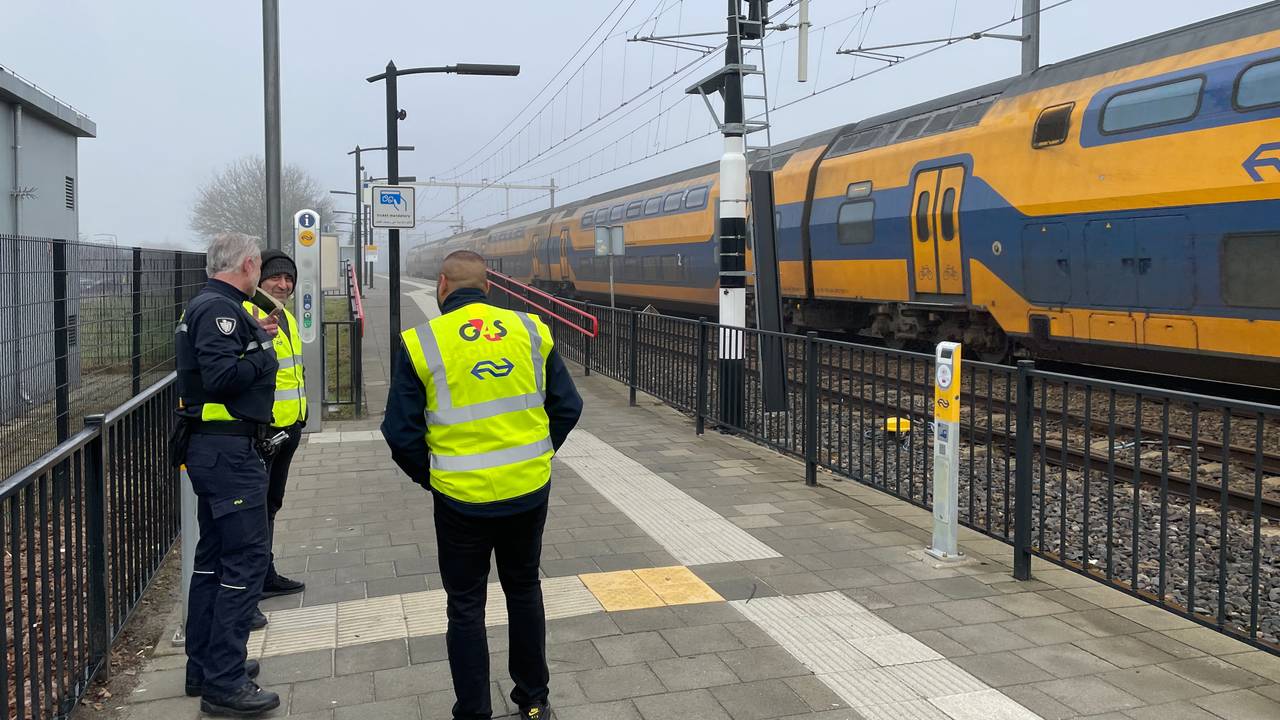The Dutch railway company, NS, has announced its intention too bypass [[1]] Maarheeze station due to ongoing safety concerns stemming from nuisance caused by asylum seekers from the nearby [[1]] Budel asylum center. In a letter to the House of Representatives, NS stated that the safety of staff and travelers can no longer be guaranteed, citing persistent aggressive behavior and disturbances at the station.
“The NS has been suffering from nuisance and aggressive behavior at and around the station for a long time,” the letter,obtained by [[1]] The Telegraph, reveals. This issue is attributed to a rotating group of residents from the Budel asylum center. Despite previous measures—such as increased security and surveillance cameras—the situation remains unresolved. Two years ago, train drivers had already expressed their desire to bypass the station due to daily disturbances.
NS has been in discussions with Minister Marjolein Faber, State Secretary Chris Jansen, the police, the province, and the municipality of Cranendonck. However, no structural solution has emerged. “This creates the situation that from a safety viewpoint we can no longer serve Maarheeze station,” the letter states. NS emphasizes that while this is an undesirable outcome, the safety of travelers and staff must take precedence.
This isn’t the first instance of service disruptions in Maarheeze. In February 2023, bus operator hermes ceased stops near the Budel asylum center following daily incidents. Bus drivers faced threats, were spat at, and encountered passengers refusing to pay for tickets.
| Key Events | Details |
|—————-|————-|
| NS Letter | NS threatens to bypass Maarheeze station due to safety concerns. |
| Previous Measures | Increased security and cameras implemented. |
| Bus Operator Hermes | Stopped services near Budel asylum center in 2023 due to driver threats. |
For further insights, read about [[1]] NS drivers’ earlier concerns and [[1]] measures to prevent nuisance on trains.The situation underscores the ongoing challenges faced by transport operators in ensuring safety amidst complex social issues.
Safety Concerns Lead Dutch Railways to Bypass Maarheeze Station – Insights from an Expert
Senior Editor, World-Today-news: Welcome to our interview segment. Today, we’re joined by Dr. Johan van der Meer, a sociologist specializing in migration and urban safety. We’re discussing the recent announcement by Dutch railway company NS to bypass Maarheeze station due to safety concerns stemming from issues linked to the nearby Budel asylum center. Dr. van der Meer, thank you for joining us.
Dr. Johan van der meer: Thank you for having me. It’s a complex issue,and I’m glad to shed some light on it.
Senior Editor: Let’s start with the basics. NS has stated that the safety of staff and travelers can no longer be guaranteed at Maarheeze station. Can you provide some context as to why this situation has escalated to such a point?
Dr. van der Meer: Certainly.the situation at Maarheeze station is a culmination of several factors. The Budel asylum center is nearby,and residents from the center have been involved in persistent aggressive behavior and disturbances at the station.While asylum seekers are often under immense stress due to their circumstances,the lack of adequate integration and support structures has led to frustration and,unfortunately,disruptive behavior. This has created a challenging environment for both transport operators and local residents.
Senior Editor: NS mentioned that previous measures, like increased security and surveillance cameras, haven’t resolved the issue. Why do you think these measures haven’t been effective?
Dr. van der Meer: The measures taken so far are reactive rather than proactive.Increased security and cameras are important for immediate safety, but they don’t address the root causes of the problem. The issue here is deeply social—it requires better integration programs, mental health support for asylum seekers, and community engagement strategies. Without addressing these underlying issues, the disturbances are likely to persist.
Senior Editor: NS has been in discussions with officials, including Minister Marjolein Faber and State Secretary Chris Jansen.Yet, no structural solution has emerged. What do you think needs to be done to resolve this situation?
Dr. van der Meer: A structural solution would require a multi-faceted approach. First, better coordination between the asylum center, local authorities, and transport operators is essential. Second, more resources should be allocated to support asylum seekers, including mental health services and integration programs. Third, there needs to be a community-based approach to foster understanding and cooperation between residents and asylum seekers. only a holistic strategy can bring long-term resolution.
senior Editor: This isn’t the first time transport operators have faced issues here. In 2023, bus operator Hermes ceased stops near the Budel asylum center due to driver threats. What does this pattern tell us?
Dr. van der Meer: It indicates a systemic problem. Transport operators are on the frontline of these social challenges, and their safety is directly impacted.The pattern suggests that isolated measures, like stopping services, are temporary fixes. Without addressing the broader social dynamics, similar issues will likely recur in other contexts.
senior Editor: NS emphasizes that bypassing Maarheeze station is an undesirable outcome, but safety must take precedence. Do you agree with this decision?
Dr. van der Meer: Safety is non-negotiable. While bypassing the station is a drastic measure, it’s understandable given the current risks. Though, it’s crucial that this decision doesn’t become a long-term solution. The community and authorities must work together to address the underlying issues so that Maarheeze station can eventually be reopened safely.
Senior Editor: Thank you, Dr. van der Meer,for yoru insightful analysis. It’s clear that this issue requires more than immediate security measures—it demands a comprehensive approach to integration and community support.
Dr. van der Meer: Absolutely. I hope this situation prompts meaningful change. Thank you for the discussion.
Senior Editor: We’ll keep following this story as it develops. Thank you, Dr.van der Meer, and to our readers for tuning in.
For further insights, read about NS drivers’ earlier concerns and measures to prevent nuisance on trains.
